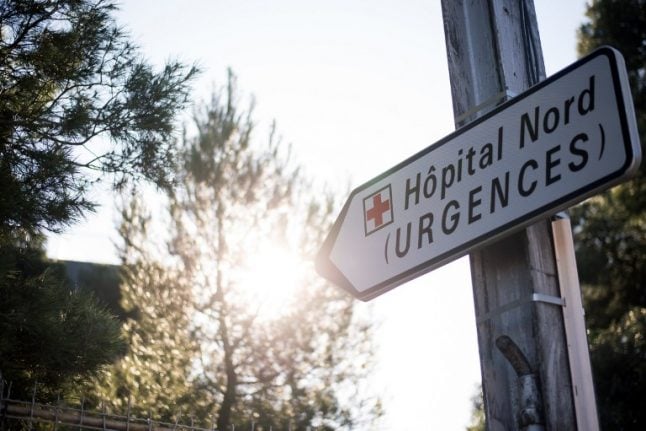
HEALTH
Hospitals in France at breaking point as flu epidemic spreads
The flu season has well and truly hit France - with emergency services 'stretched to capacity' and struggling to cope.
Published: 11 January 2017 09:14 CET

Photo: AFP
France's Health Minister Marisol Touraine has said that French health care professionals were at breaking point due to the annual flu epidemic.
“Emergency services are particularly in demand and they're at the limits of their capabilities,” she said at a press conference on Tuesday.
She added that the epidemic was particularly intense this year, and “had not yet reached its peak”.
“The reports I have seen today show a worrying situation.”
The virus is a strain of H3N2, a cousin of a flu that contributed to 18,000 deaths two years ago, public health authorities say.
Indeed, the virus struck France a month earlier than usual, with the majority of the country at epidemic level back in late December.
Emergency medic Gérald Kierzek told the Europe 1 channel that the overcrowded hospitals weren't due to the virus itself, however.
“The flu isn't more virulent than in other years,” he said.
“It's rather that the hospital system is at saturation point. The health system is in free fall and the emergency services are the underside of the iceberg.”
France's health ministry, which gathers data from patient call-outs to doctors, said in its weekly report on Wednesday that 974,000 people contacted medics after getting struck down by stomach flu in the last four weeks.
It added that the rate of flu-like illness reported was estimated to be 395 cases per 100,000 inhabitants, which is more than double epidemic threshold of 178 cases per 100,000.

The government urged the elderly and those with heart or lung problems to get a flu jab following the death of 13 residents at a nursing home in Lyon. It launched an investigation into their deaths.
The department said that people should take extra measures to ensure they stay healthy, including: Drinking plenty of water to stay hydrated, washing your hands regularly, avoid going out if possible, throwing used tissues in a closed bin.
Url copied to clipboard!


 Please whitelist us to continue reading.
Please whitelist us to continue reading.
Member comments